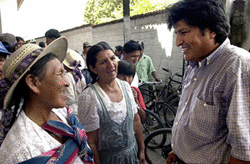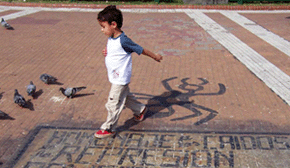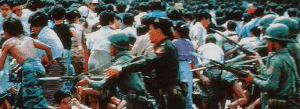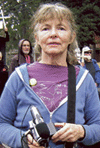Boy walks past anti-repression graffiti, Buenos Aires
The Dirty War in Argentina is a complex story that can be viewed through a variety of lenses. During the six months I recently spent in Argentina, I found that the more I learned about the Dirty War, the more I was learning about the "War on Terror." To say that the current state of repression in the US is exactly like the Dirty War would be an insult to the 30,000 people who were disappeared and tortured in Argentina. The similarities between the two "wars," however, can indicate in what direction the US may be headed and how progressives can steer the country in another direction.





